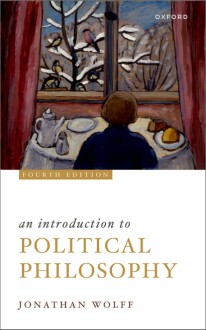Exploring Political Philosophy: An Introduction to Political Philosophy 4th Edition Review
Key Takeaways
- Comprehensive overview of political philosophy.
- Covers major thinkers and concepts in the field.
- Engaging writing style suitable for students and enthusiasts.
- Updated content reflecting contemporary issues.
Political philosophy serves as the backbone of our societal structures, guiding our understanding of justice, rights, and governance. "An Introduction to Political Philosophy 4th Edition" provides readers with essential insights into the minds that shaped political thought. This book is a valuable resource for anyone seeking to explore the intricate relationship between philosophy and political theory.
Delve into the world of political ideas and discover how they apply to modern issues. Whether you're a student of philosophy or just curious about the foundations of political systems, this book is a must-read for your collection. For more insights, check out our sections on Philosophical Texts and Spiritual Growth.
About An Introduction to Political Philosophy
"An Introduction to Political Philosophy 4th Edition" is a well-crafted exploration of the fundamental questions and theories surrounding political thought. This edition reflects current debates and incorporates the most significant contributions from renowned philosophers, making it a relevant resource for today’s readers. The book is designed to engage both newcomers and seasoned scholars, providing a comprehensive understanding of the complex landscape of political philosophy.
Key Features
- In-depth Analysis: The book meticulously discusses key political concepts such as justice, liberty, and authority, providing readers with the tools to critically analyze these themes.
- Major Thinkers: It covers influential philosophers like Plato, Aristotle, Hobbes, Locke, and Rousseau, offering insights into their contributions and relevance to contemporary issues.
- Contemporary Issues: The updated content addresses modern political challenges, making it applicable to current events and debates in society.
- Engaging Writing Style: The author employs a clear and engaging writing style that makes complex ideas accessible to a broad audience.
The book is structured to facilitate easy navigation through various topics, allowing readers to explore specific interests or gain a holistic understanding of the field. Each chapter includes summaries and discussion questions that enhance learning outcomes.
Who Will Benefit from This Book?
- Students: Ideal for undergraduate courses in political science and philosophy, it provides a solid foundation for further study.
- Educators: A valuable resource for teachers looking to enrich their curriculum with comprehensive content on political philosophy.
- General Readers: Perfect for anyone interested in understanding the philosophical underpinnings of political systems.
For more related resources, explore our sections on Holistic Wellness and Mindfulness Techniques.
 Check Current Price
Check Current Price
What to consider about this book
Pros
- Comprehensive coverage of political thinkers and concepts.
- Engaging writing style that makes complex ideas accessible.
- Updated content reflecting contemporary political issues.
- Structured to facilitate easy navigation and understanding.
- Includes discussion questions and summaries enhancing learning.
Cons
- Some readers may find the depth challenging without prior knowledge.
- Not suitable for those seeking a purely practical guide to politics.
- Limited focus on non-Western political philosophies.
Overall, "An Introduction to Political Philosophy 4th Edition" offers a rich and engaging exploration of political thought, making it an excellent resource for students and enthusiasts alike. Despite a few limitations, its comprehensive approach and clarity strongly outweigh the cons, making it a worthwhile addition to any bookshelf.
Final Thoughts on Your Political Philosophy Journey
As you consider adding "An Introduction to Political Philosophy 4th Edition" to your library, there are a few important tips to keep in mind when purchasing similar products:
Tips for Buyers
- Assess Your Knowledge Level: Ensure the book matches your understanding of political philosophy; introductory texts are best for beginners.
- Look for Updated Editions: Newer editions often reflect contemporary debates and current events.
- Consider the Writing Style: Choose books that present complex ideas clearly and engagingly, especially if you are new to the subject.
- Avoid Overly Specialized Texts: If you're looking for a general overview, steer clear of books that focus too narrowly on specific philosophies.
In summary, "An Introduction to Political Philosophy 4th Edition" presents a well-rounded view of key political theories and thinkers, making it an invaluable resource. With its engaging writing style and comprehensive coverage, it serves both students and general readers effectively. However, it may pose challenges for those without prior knowledge and may not cater to those seeking practical political guidance.
Ultimately, if you are eager to deepen your understanding of political thought and its application to modern society, this book is a commendable choice. The insights it provides will not only enhance your knowledge but also encourage critical thinking about the political landscape we navigate today.
 Check Current Price
Check Current Price
Your Questions Answered: Political Philosophy Edition
-
Q: Does the book cover modern political issues?
A: Yes, it includes updated content that addresses contemporary political challenges and debates.
-
Q: Is this book suitable for beginners?
A: It is designed for both newcomers and seasoned scholars, making it accessible to those with limited prior knowledge.
-
Q: Are major philosophers discussed in detail?
A: Absolutely, the book provides in-depth discussions on influential thinkers such as Plato, Aristotle, and Locke.
-
Q: Does it include discussion questions?
A: Yes, each chapter features discussion questions that enhance comprehension and encourage critical thinking.
-
Q: How is the writing style?
A: The writing style is engaging and clear, making complex ideas more accessible to a broader audience.













